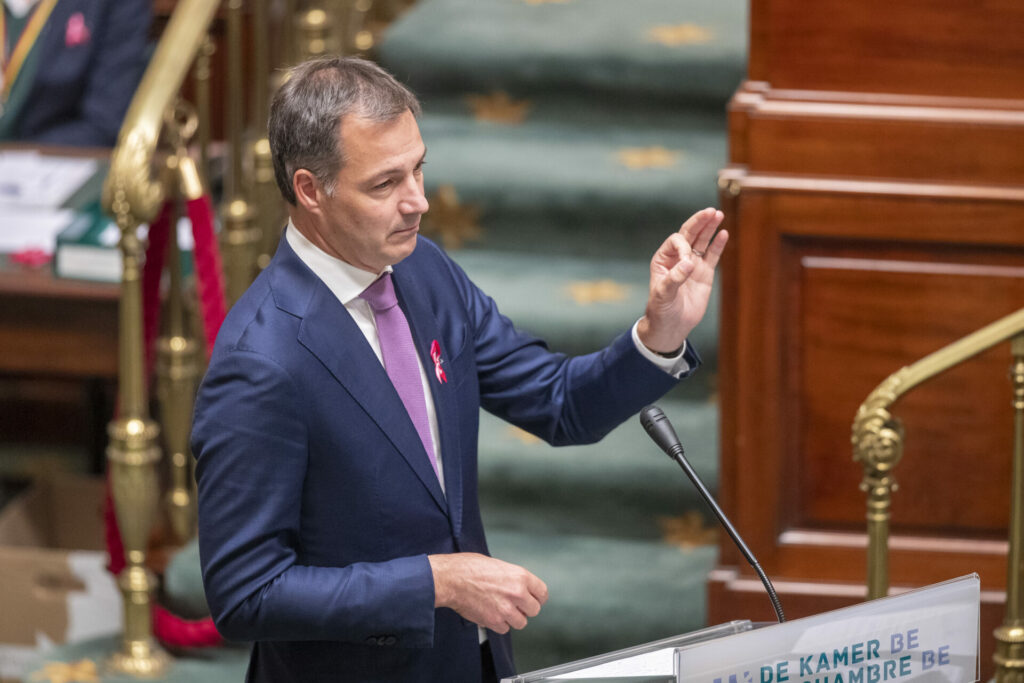With Belgian Prime Minister Alexander De Croo expected to give his State of the Union address at 14:00 on Tuesday, the Federal Government faces a race against the clock to find an agreement on its 2023 federal budget.
At 10:00 on Monday morning, the Federal Government resumed talks on the upcoming federal budget after having made significant progress over the weekend.
Measures include improving Belgium's economic competitiveness abroad, as well as finalising their response to the energy crisis, with ministers having already agreed to extend the energy support measures announced in September by a further three months until March 2023.
However, there appear to be stumbling blocks, particularly between the French-speaking Socialist Party (PS) and both liberal parties Open-VLD and MR's respective ideological positions on certain issues.
Pensions and welfare
The disagreement originates from the liberals' determination to remove 'equalisation' of pensions for public servants.
In Belgium, public workers' pensions are adjusted biannually in response to increases in active officials' salaries, depending on the region in which they serve.
The liberals, on their end, have proposed to abolish the practice, which would enable the government to establish a balance between cuts and new sources of revenue. The PS on the other hand, has accused them of using these discussions to justify the lowering of pensions.
Furthermore, the liberal parties' proposal to reduce the funding of the CPAS, the body in charge of welfare for Belgian municipalities, by €70 million has also drawn the ire of socialists. The PS have stated their opposition to the idea, given the current economic and energy crisis Belgium is experiencing.
Taxing excess energy profits
Another point of contention is recent proposal by Energy Minister Tinne Van der Straeten to tax energy companies' profits above €130 per MWh over a two-year period. This would result in the Federal Government generating €4.7 billion of additional revenue.
However, the Federal Government's centre-right parties want to adapt Van der Straeten's proposal to be more in line with the EU's framework to tax energy profits above €180 over a seven month period.
Among the proponents of a more restrained taxation is the government's Finance Minister Vincent Van Peteghem (CD&V), while others also fear that the Energy Minister's proposal may scupper talks with Engie for the extension of their nuclear reactors.
Related News
- Wallonia agrees on budget for 2023 in attempt to alleviate energy crisis
- Belgian Federal Government resumes budget talks today
- Belgian Finance Minister pushes brake on 'skimming off' excess profits of energy companies
However, it is also being reported that an agreement will soon be reached over the amount of €130 per MWh, the period of which is yet to be decided.
As a result, centre-left parties (Groen, Ecolo, Vooruit and PS) pushing for the two-year period due to the €4.7 billion it would generate, compared to €1.2 billion during a seven month period.
Further taxes being discussed
Various outlets have reported that new taxes have been proposed during these negotiations. These include doubling the amount the government collects from brokerage accounts, eliminating the tax break for second homes, and raising taxes on the country's richest earners.
However, these will have to be accepted by the government's liberal ministers, who have recently stated that they want the budget to include "as few taxes as possible."
The cabinet now has until Tuesday at 14:00 to iron these issues out before De Croo delivers his speech to the Federal Chamber of Representatives.

